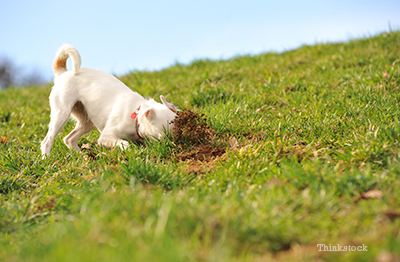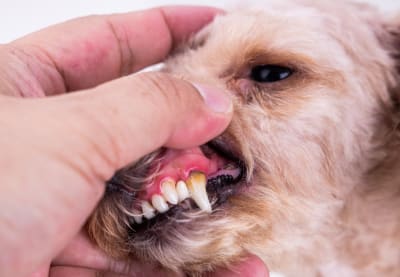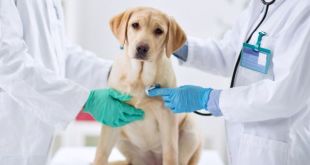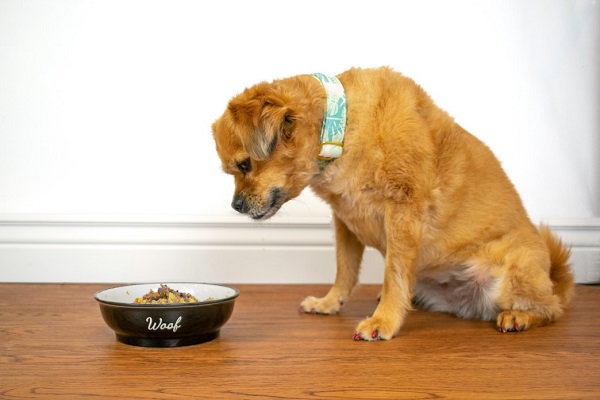Of course, you love your pooch, but getting up close and personal might be the last thing you want If he’s got stinky dog breath. But bad dog breath is just something you have to live with when you have a dog, right?
Actually, no. Your dog could have bad breath for a number of reasons, many of which are harmless; But sometimes, it’s a sign of an underlying health condition. Either way, a healthy dog should not have chronic stinky breath.
Thankfully, bad breath in dogs can be prevented or relieved in most cases, especially if you act quickly. Here are some of the most common causes of smelly dog breath and how they relate to your dog’s overall health, and what you can do to improve it.
What Causes Bad Breath in Dog?
Gross Eating Habits
It’s tough to admit, but sometimes our furry little buddies can be kind of gross. They love to eat things they shouldn’t, like cat poop, garbage, decomposed animal remains, and sometimes even their own feces.
Distasteful snacking habits could be the cause of your dog’s bad breath, especially if you only notice it after your dog has been unsupervised around something stinky. Not only that but eating these types of things can cause stomach upset and introduce unhealthy bacteria and parasites to your dog’s system.
Thankfully, there’s a simple solution to this problem. Simply keep temptations out of reach or supervise your dog to keep him from eating things that could be causing his bad breath and other health issues.
Poor Oral Hygiene and Canine Dental Disease
Dental diseases in dogs are one of the most common causes of bad breath, and they can lead to a host of health problems for your pooch. When plaque and bacteria build up on the teeth, it not only causes bad breath but also gingivitis and periodontal disease.
If left untreated, infections in the teeth and gums can travel through the bloodstream and cause harm to the liver, heart, kidneys, and other organs. Periodontal disease also causes your pet unnecessary pain and could eventually lead to tooth loss.
Unfortunately, even though periodontal disease can be prevented with good oral hygiene, as many as 80% of pets have some degree of dental disease by the time they’re just three years old.
There are Several Steps you can take to Prevent Bad Breath due to Poor Oral Hygiene and Periodontal Disease:
Brush your Dog’s Teeth Daily:
Daily brushing is a great way to keep plaque, bacteria, and tartar from building up on your dog’s teeth. Be sure to use dog-safe toothpaste and a soft brush.
Provide Dental Toys and Chews:
Dental toys and chews can help prevent and reduce plaque and tartar build-up on the teeth. Look for brands that carry the Veterinary Oral Health Council (VOHC) seal to ensure that you are getting a safe and effective product.
Regular Dental Checkups and Professional Cleanings:
According to trusted dog dentists in NYC, brushing alone cannot remove tartar and plaque that has already built up on your dog’s teeth. And, even with regular brushing, plaque and tartar can still build up over time, especially under the gumline where you can’t see.
Regular dental checkups and professional cleaning are essential for removing built-up plaque and tartar on the teeth and under the gumline, which is essential for preventing bad breath and periodontal disease.
Diabetes
If your dog’s bad breath is more fruity or sweet than it is foul, it’s time to see the vet. Sweet, fruity-smelling breath is a sign of diabetes, which can be serious if left untreated. Other signs of diabetes in dogs include frequent urination, drinking more than usual, and unexplained weight changes.
Kidney Disease
Foul breath that smells like urine doesn’t mean your dog has been drinking pee. It’s actually one of the earliest signs of kidney disease in dogs, and it warrants a visit to the vet. In many cases, kidney disease is a symptom of a larger health problem that requires immediate medical intervention.
Liver Disease
Foul, musty-smelling breath that’s accompanied by lack of appetite, vomiting, and yellow-tinged eyes and gums could indicate liver issues. When the liver isn’t functioning correctly, it has lost its ability to filter out toxins. Liver problems can be very serious, and an emergency vet visit is crucial.
Digestive Issues
Digestive issues, acid reflux, and bowel obstructions can also lead to stinky dog breath. These issues can cause the bad odors and gas associated with digestion to move out through the mouth, rather than the intestinal tract, leading to foul-smelling breath.
Digestive issues can often be remedied by changing to a higher quality, easily digested diet, and providing probiotics. However, bowel obstructions can be serious and life-threatening. If you notice your dog is straining to poop, it’s time to call the vet.
How To Improve Your Dog’s Bad Breath?
Preventing bad breath from developing in the first place is much more desirable than dealing with it after the fact. If you can, start brushing your dog’s teeth when he’s a puppy.
If your dog is older, have his teeth professionally cleaned first, and then begin brushing daily to prevent bad breath and oral decay in the future. Dental treats and toys are also very helpful.
Feeding your dog a high-quality diet and providing an active, healthy lifestyle can help prevent chronic diseases such as diabetes, kidney disease, and liver issues.
Regular checkups can also help your veterinarian pick up on developing health issues early, possibly treating them before they cause bad breath and other serious issues.
Wrapping It Up
If brushing your dog’s teeth daily and providing a healthy diet and lifestyle aren’t remedying your dog’s bad breath, it’s time for a visit to the vet. They can determine if it’s time for a professional cleaning and rule out any underlying health conditions that may be leading to your dog’s stinky breath.
 DogExpress
DogExpress





















 in Chandigarh, India.
in Chandigarh, India. 

